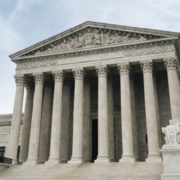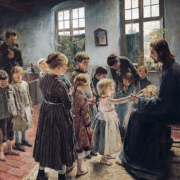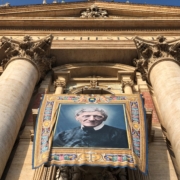What Would A Justice Kavanaugh Mean for Catholic Education?
The nomination of Judge Brett Kavanaugh to the Supreme Court Justice has ignited storms of protests from the left, mostly centered around the issue of abortion. But another issue promises to be the focus of some harsh questioning in the near future — Catholic schools.
I’ve long believed that the fate of this country is tied to the strength of our faithful Catholic schools. For one to survive, the other must thrive. And let’s be honest, many many Catholic schools are currently operating on a sub-thrive basis. Why? There are many reasons including a cultural shift that not only inspires apathy about the faith but anger and ridicule. Another has been the mass exodus of nuns from Catholic schools, which forced the schools to allocate significant funds toward paying teachers which led to huge increases in tuition, thus pricing them out of many well-intentioned people’s lives. This has been a calamity for Catholic education and this country. But one of the remedies to this situation that would help families afford a Catholic education has been essentially barred by the odious anti-Catholic Blaine Amendments that exist throughout our country, preventing voucher plans from taking effect.
Here’s a very brief history: In the mid 19th century, anti-Catholic bigotry escalated in reaction to a wave of Catholic immigrants coming to America and establishing Catholic schools which requested public funding. At the time, the public school system was largely seen as protestant strongholds where children recited prayers and read the Bible. In reaction to the Catholic immigrants, many in the country became aligned with the Know Nothing movement which made one of its top priorities barring Catholic schools from receiving public funding. In 1875, President Ulysses S. Grant urged Congress to adopt a constitutional amendment to prohibit public funding of what they called “sectarian schools.” To be clear, they were talking about Catholic schools. Blaine, then a member of the U.S. House of Representatives, complied vigorously with President Grant’s request by introducing an amendment to the U.S. Constitution to do just that. Thankfully, his efforts fell just short in the Senate.
But the ball was rolling downhill and it only picked up speed. Supporters of the Blaine Amendment went local, promoting their anti-Catholic agenda in state legislatures to great effect. As of right now, something akin to Blaine Amendments exist in over three dozen state constitutions which bar public aid to religious organizations, including Catholic schools.
Blaine himself rode a tide of popularity to win a Senate seat and even was the Republican nominee for the presidency where he lost one of the narrowest elections our country has seen (mainly because he alienated Catholics). But his impact continues with the amendments still acting as barriers against vouchers for education. Those who most loudly support the Blaine Amendments no longer are affiliated with the Know Nothing movement and they don’t typically concern themselves with conspiracies of the papacy staging a coup on the country. Nowadays, supporters of the Blaine Amendments express concerns about the separation of church and state as well as those who fear that vouchers would harm public schools as many parents would inevitably opt out of public schools if given the chance. Mind you, there is also a not insignificant number of anti-Christian secularists and atheists who would simply like to see religious schools starved out of existence.
But after years of court battles, there is currently a great deal of pushback concerning the constitutionality of the Blaine Amendments and the issue could end up being decided by the courts in the near future. They argue that it is the proper role of government to be neutral on religion, not discriminating against it precisely because of its religious mission.
In fact, the Supreme Court in a 7-2 decision, ruled last year that Trinity Lutheran, a church in Missouri, could receive state funding to pave its playground with recycled tires even after the state said they weren’t able to because of their state’s constitution.
While the victory was cheered by religious liberty advocates, it was ridiculously narrower than many wanted. The high court did say that “denying a generally available benefit solely on account of religious identity imposes a penalty on the free exercise of religion” but expressly added that the case was about “express discrimination based on religious identity with respect to playground resurfacing.” Thank goodness our long national nightmare over the constitutionality of the resurfacing of Christian playgrounds is finally over!Supporters of school vouchers had hoped at the time that the Supreme Court was ready to put an end to Blaine Amendments. But they didn’t take on the wider issue at all. They punted. Some believe it’s because the conservative judges on the court didn’t think they had enough votes to go ahead on the wider issue.
Enter Judge Kavanaugh.
President Donald Trump’s nominee, Brett Kavanaugh, is a product of Catholic schools who has spoken out on this very issue in favor of religious schools. In fact, before becoming a federal judge, Kavanaugh had served for a time as the co-chair of the School Choice Practice Group of the Federalist Society.
At the American Enterprise Institute in December of last year, Kavanaugh reportedly complimented Chief Justice William Rehnquist’s efforts to ensure that “religious schools and religious institutions could participate as equals in society and in state benefits programs.” He also correctly praised Rehnquist’s criticism of the modern understanding of the separation between church and state as “based on bad history.”
Vouchers have the potential to change the fate of religious schools throughout the country at a time when many are struggling financially. They can help parents whose children are trapped in underperforming schools find a way out. And finally, with Justice Kavanaugh on the bench, this country may finally cut its ties to this awful legacy of anti-Catholic bigotry.
Matt Archbold is a fellow of the Cardinal Newman Society. This article was cross-posted at The National Catholic Register.

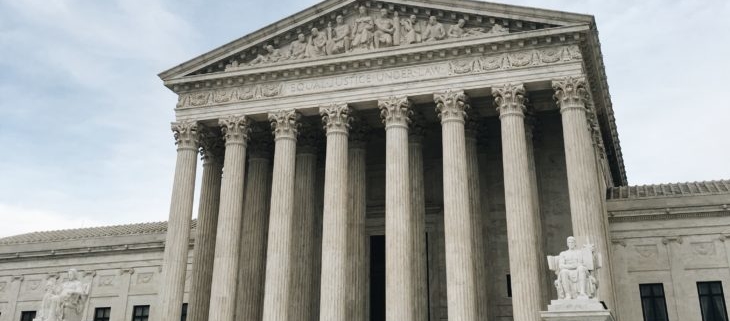


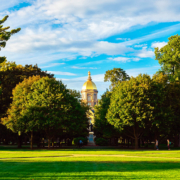 Photo by David Mark via Pixabay CC0
Photo by David Mark via Pixabay CC0